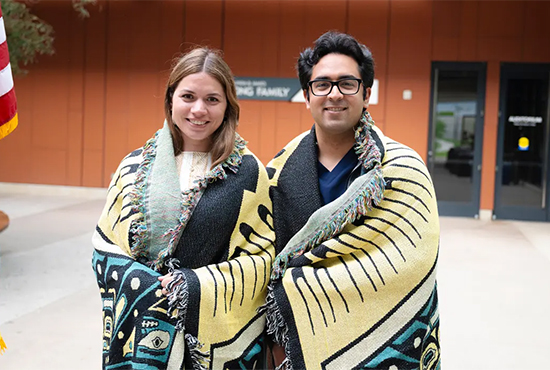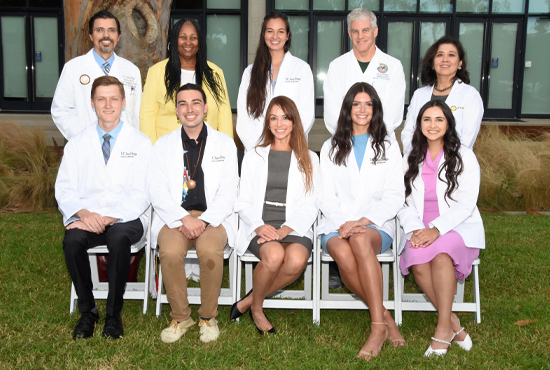PRIME
- Health Equity
- Transforming Indigenous Doctor Education
The mission of the PRIME-TIDE program is to prepare medical students for careers focused on providing healthcare to Native populations. This will be accomplished by didactic and experiential training on the specific healthcare needs, cultural context in which that care is provided and how medical research may inform decisions made by healthcare personnel.
The University of California San Diego School of Medicine recently held its fourth annual Indigenous Medicine Ceremony, which honors and recognizes students who are training to provide health care to Native American and Indigenous populations.

Learn more about our PRIME-TIDE students who are committed to meeting the needs of Native populations.
PRIME-TIDE is an inclusive program designed to build on students’ interests and backgrounds in providing healthcare to AI/AN populations. It is open to all School of Medicine applicants.
PRIME-TIDE offers an enhanced curriculum that includes specific healthcare needs, cultural context in which care is provided, and how medical research may inform decisions made by healthcare personnel.
Matriculated students receive significant financial support for each year they are in medical school. Funding available to PRIME-TIDE students can include up to $20,000 per year and/or UC tuition and fees waived for registered citizens from federally recognized tribes.
